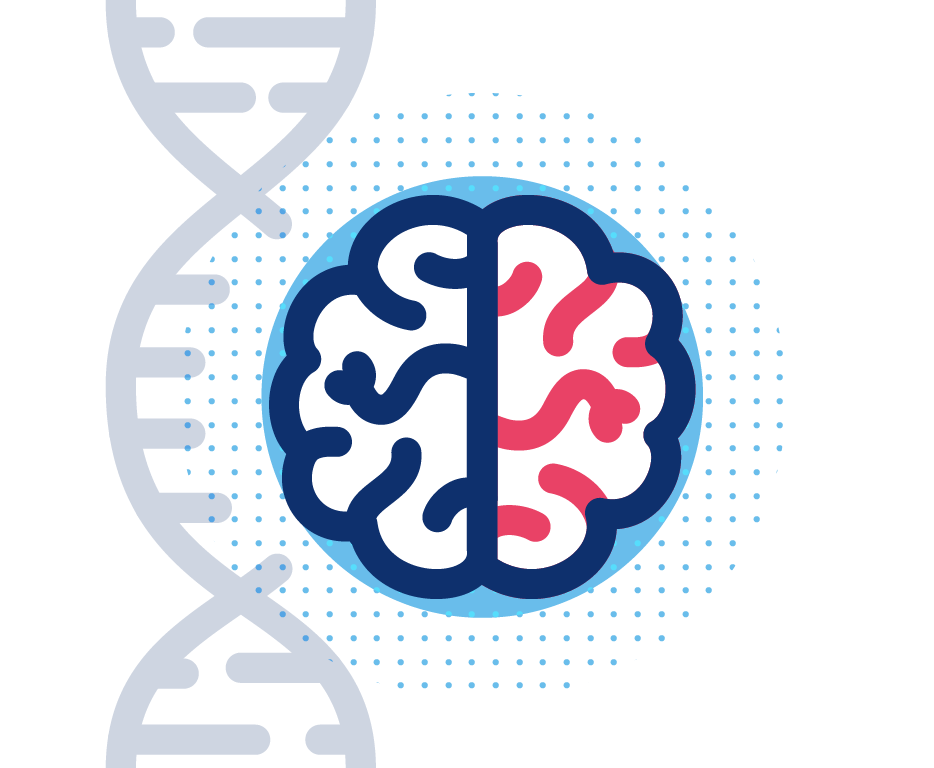In accordance with the provisions of Regulation (EU) 2016/679 on the protection of personal data of natural persons (RGPD), we inform you that the personal information you provide will be duly registered and incorporated into the data processing systems under the responsibility of:
Company Name: Euroespes S.A.
Commercial Name: EuroEspes S.A.
Registered Office: Santa Marta de Babio S/N - Bergondo (A Coruña)
CIF / NIF: A15319452
Telephone: 981780505
Fax: 981780511
e-Mail: info@euroespes.com
Registered in the Registry: R.M. of La Coruña, Volume 855, General Section, Folio 202, Page C-1635, Inscription 1ª.
Domain name: euroespes.com
Contact details of the Data Protection Delegate: delegado@euroespes.com
Diagnóstico, Tratamiento y Prevención del Alzheimer
La enfermedad de Alzheimer es el principal trastorno neurodegenerativo. El Alzheimer en particular y la demencia en general presentan un importante componente genético y familiar, cuyo riesgo se incrementa con factores ambientales y/o enfermedades concomitantes.
El equipo médico y científico del Centro Internacional de Neurociencias y Medicina Genómica, liderado por el Dr. Cacabelos, ha desarrollado un PROTOCOLO ÚNICO de actuación clínica para el diagnóstico, tratamiento y prevención de la enfermedad de Alzheimer.
La MEDICINA GENÓMICA y la PERSONALIZACIÓN DEL TRATAMIENTO son los principales elementos clave y diferenciadores que nos colocan a la vanguardia de la medicina actual y nos permiten la realización de diagnósticos más precisos y personalizados.
Diagnóstico en una sola sesión
We perform all the tests required by each person (analytical, neuropsychological, etc.) in a single day in order to reach an accurate diagnosis.

Alzheimer's Prevention Plan
Programa para la identificación del riesgo de padecer la enfermedad de Alzheimer, u otras formas de demencia, muchos años antes de que aparezcan los primeros síntomas. Permite la discriminación de otros trastornos de memoria y demencias (vascular, mixta, fronto-temporal, por cuerpos de Lewy).
La enfermedad de Alzheimer no tiene tratamiento curativo y los medicamentos actuales (donepezilo, rivastigmina, galantamina, memantina) son de escasa eficacia para conservar la memoria y no están carentes de toxicidad. Se está trabajando en vacunas, que no estarán disponibles antes de una década, por lo que se estima que la mejor forma de intervención es la preventiva, interceptando la enfermedad antes de que se manifieste mediante fórmulas de intervención personalizada.
- Examen General
- Examen Sistémico
- Examen Neurológico
- Examen Psiquiátrico
- Análisis de sangre:
- Biochemistry
- Hemograma
- Metabolismo
- Hormonas
- Análisis de orina y otros fluidos corporales
- Pruebas especiales:
- Neurotransmitters
- Marcadores Tumorales
- Paneles Personalizados
- Intolerancias Alimentarias
- Radiology
- Densitometry
- Magnetic Resonance Imaging
- Tomografía Axial Computerizada
- Brain Mapping
- Digital Optical Surveying
- Ultrasonography
- Electrophysiology
- Specific Somatosensory Tests by Organs of the Senses (Vision, Hearing, Smell, Taste, Touch)
- Psychomotor Tests
- Cognitive Function
- Emotional Status
- Conduct
- Intelligence
- Psychomotor
- Global exome (NGS technology)
- Paneles diagnósticos específicos:
- Genómica Predictiva
- Genómica Diagnóstica
- Monogenic Genetic Analysis
- Perfil Farmacogenético Global (PGx-60/4000)
- Perfil Farmacogenético por Patología
- Perfil Farmacogenético por Categoría Farmacológica
- Perfil Farmacogenético por Fármaco
- Global DNA methylation
- Expression of Pathogenic Genes
- Expression of FarmaGenes (PharmacoEpiGenetics)
EN QUÉ CONSISTE NUESTRO PROTOCOLO DIAGNÓSTICO
1.- Evaluación clínica.
– Valoración inicial del paciente.
– Exploración médica completa.


2.- Pruebas a realizar.
– Evaluación Sanguínea Completa.
– Evaluación Cerebral:
– Morfológica: Resonancia y TAC.
– Funcional: Topografía, Actividad Bioeléctrica Cerebral y Doppler Transcraneal.
– Evaluación Corporal Completa: Digestivo, Óseo, Función Pulmonar, Exploración Vascular (Arterial y Venosa) y Aparato Genitourinario.
– Evaluación Cardiovascular.
– Evaluación Neuropsicológica.
– Rastreo Genómico (*):
– Panel Genético Alzheimer.
– Panel Genético Cerebrovascular.
– Biomarcadores Epigenéticos: Metilación Global.
– Farmacogenética. (Tratamiento personalizado acorde con su genética).
– Pruebas Sensibilidad Alimentaria.
– Otras pruebas a determinar en la evaluación médica inicial:
– Neuro – Otorrinolaringología.
– Neuro – Oftalmología.
* Estas pruebas están disponibles para realizarse de forma anticipada en su domicilio. Solicite información.
3.- Análisis de los resultados obtenidos.
Al final de la jornada, obtenemos un diagnóstico clínico que nos permite realizar un programa personalizado de intervención preventivo y/o terapéutico para cada paciente.


4.- Informe Médico.
It includes all the tests of the diagnostic process and the treatment guidelines to be followed based on the patient's pharmacogenetic profile.
Este programa también va dirigido a:
1.- Familiares de primera y segunda generación con historia de demencia en la familia.
2.- Personas con enfermedades Cardiovasculares y/o cerebrovasculares que representan factores de riesgo para demencia.
3.- Población en general a partir de 30 – 35 años que quieran conocer su perfil de riesgo genético.

